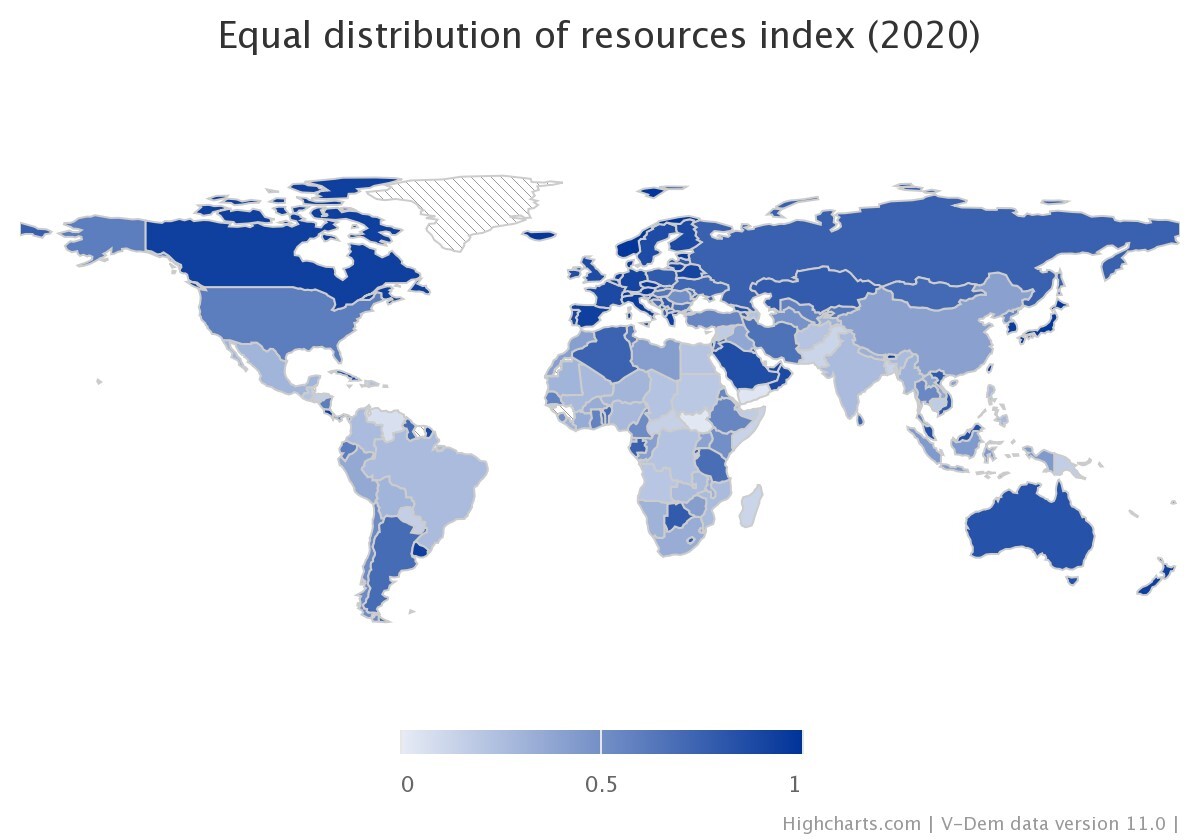World Water Day a Reminder of Global Resource Inequity
By: Rowan Cole
Mar 22, 2021
March 22 marks World Water Day, which raises awareness of people living without safe water. Billions of people worldwide live without basic sanitation and clean drinking water, mostly in rural areas. The UN’s Sustainable Development Goals include action on the global water crisis, with targets for achieving universal and equitable access to safe and affordable drinking water for all.
The 17 Sustainable Development Goals seek to address global challenges of poverty, inequality, climate change, environmental degradation, peace and justice. Water and other resources that are part of these goals, such as education, food and healthcare, are considered in the V-Dem “Equal Distribution of Resources Index”. This index captures the notable differences in access to resources within countries, in the broader context of global inequality.
The Equal Distribution of Resources Index is scored from 0 to 1, with higher values indicating a more equitable distribution of resources. Access to basic resources such as food, water, housing, education, and healthcare are prerequisites for effective exercise of rights and freedoms, as well as effective participation in the democratic process.
The global high levels of resource inequality found in South Sudan (0.02) and Yemen (0.03) highlight that civil, or internationalized civil conflict drastically increases resource inequality within a state. The graphic shows that South Asia and Sub-Saharan Africa continue to be the regions most troubled by inequal resource distribution – with notable exceptions of Sri Lanka and Botswana. In Botswana’s case this might be attributed to its relatively small population and significant natural resource wealth overseen by prudent economic management. The long-term effects of the global Covid-19 pandemic that has disproportionately affected poorer populations on resource distribution remain to be seen. Economic downturn and associated government reduction of welfare funding is likely to exacerbate resource inequality within many countries, including in affluent countries.
In any case, much work is left to be done if the UN’s Sustainable Development Goals that seek to ensure access to water and other resources to all, are to be fulfilled.


